Top 9 Health Benefits of Chickpeas
Chickpeas, also known as garbanzo beans, have been grown and consumed in Middle Eastern nations for thousands of years. They go well with a variety of other ... read more...dishes and components because of their nutty flavor and gritty texture. Chickpeas, which are a nutrient-dense source of vitamins, minerals, and fiber, may help with weight control, improve digestion, and lower your risk of disease. Additionally, this bean is a good meat substitute in many vegetarian and vegan meals due to its high protein content. Here are the best health benefits of chickpeas.
-
Chickpeas have a remarkable nutritional makeup. They have a moderate amount of calories (269 per cup) (164 grams). About 67% of these calories are from carbohydrates, with the remaining calories coming from protein and fat. Chickpeas also provide a variety of vitamins and minerals, as well as a decent amount of fiber and protein. A 1-cup (164-gram) serving of cooked chickpeas offers:
- Calories: 269
- Protein: 14.5 grams
- Fat: 4 grams
- Carbs: 45 grams
- Fiber: 12.5 grams
- Manganese: 74% of the Daily Value (DV)
- Folate (vitamin B9): 71% of the DV
- Copper: 64% of the DV
- Iron: 26% of the DV
- Zinc: 23% of the DV
- Phosphorus: 22% of the DV
- Magnesium: 19% of the DV
- Thiamine: 16% of the DV
- Vitamin B6: 13% of the DV
- Selenium: 11% of the DV
- Potassium: 10% of the DV
As you can see, this legume is a particularly good source of the mineral manganese and the B vitamin folate.
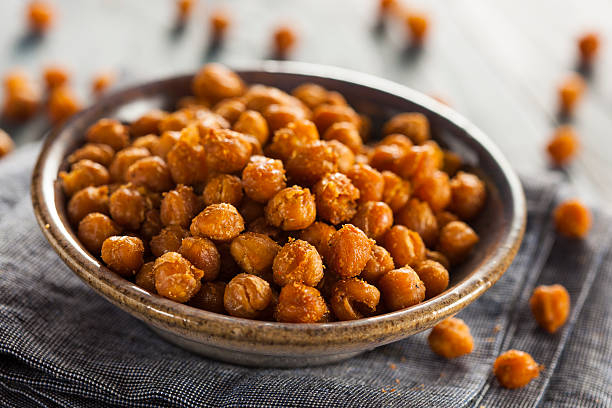
Packed with nutrients 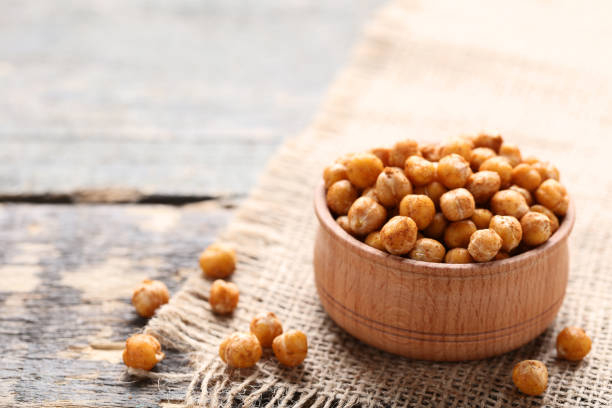
Packed with nutrients -
Your appetite may be controlled by the protein and fiber in chickpeas. Together, protein and fiber help boost fullness by slowing digestion. Additionally, protein may raise your body's levels of hormones that decrease appetite. In fact, the protein and fiber in chickpeas have a filling effect that may naturally reduce your calorie intake. In one study, 12 women who consumed two separate meals compared their hunger and caloric intake.
They consumed 1.25 cups (200 grams) of chickpeas before one meal and two slices of white bread before the other. Compared to the white bread lunch, they felt significantly less hungry and consumed fewer calories following the chickpea dinner. Another small trial showed that eating pretzels and hummus made of chickpeas reduced appetite by 70% and increased feelings of fullness by 30%. However, further study is required to better understand how chickpeas affect hunger.
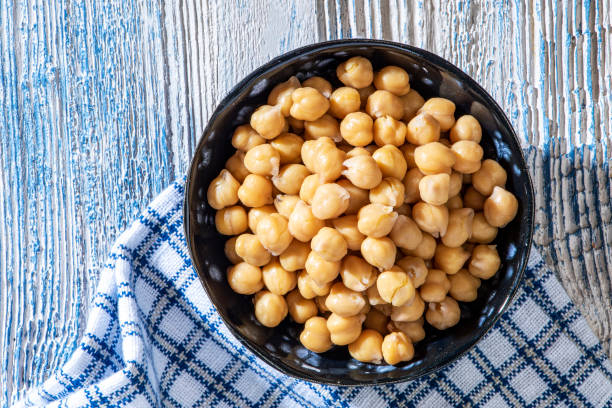
May keep you feeling full 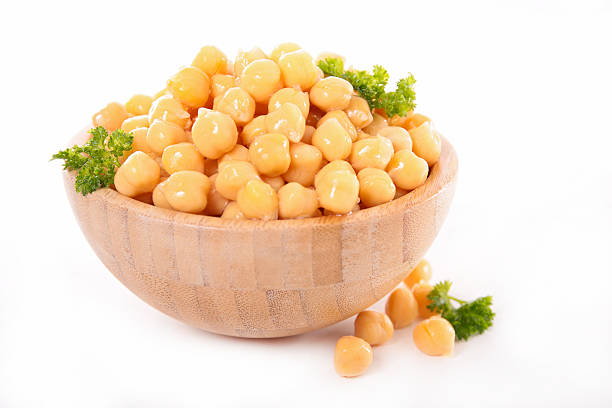
May keep you feeling full -
Being a terrific source of plant-based protein, chickpeas are a fantastic diet for those who don't consume meat or other animal products. About 14.5 grams of protein are included in a 1-cup (164-gram) meal, which is equivalent to the protein level of foods like lentils and black beans. The protein in chickpeas might aid in promoting fullness and controlling your appetite. Additionally, protein is recognized for its contribution to bone health, muscle strength, and weight management.
According to research, chickpeas provide higher-quality protein than other varieties of legumes. That's because, with the exception of methionine, chickpeas contain all of the essential amino acids. They are therefore an inadequate source of protein because of this. It's critical to combine chickpeas with a whole grain that includes methionine, such as quinoa, to ensure that your diet has all nine essential amino acids.
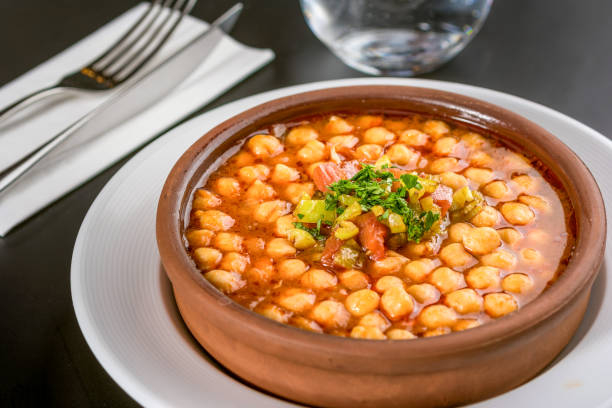
Rich in plant protein 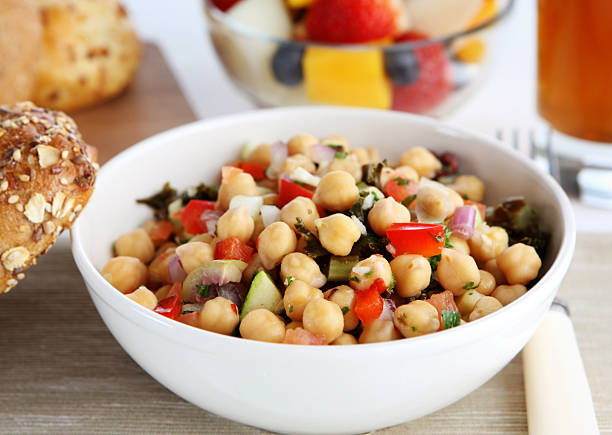
Rich in plant protein -
Chickpeas' ability to fill you up may help with weight management. As a result of your decreased hunger brought on by the protein and fiber in chickpeas, you might consume fewer calories when eating. According to one study, people who regularly ate chickpeas had a 53% lower risk of having a body mass index (BMI) over 30 and were more likely to have a smaller waist circumference. Although BMI is still a widely used health indicator, its usefulness is constrained.
However, a different study discovered that people who consumed at least 1 serving of legumes per day, such as chickpeas, lost 25% more weight than people who did not. More human investigations are required, despite the fact that these results seem encouraging.
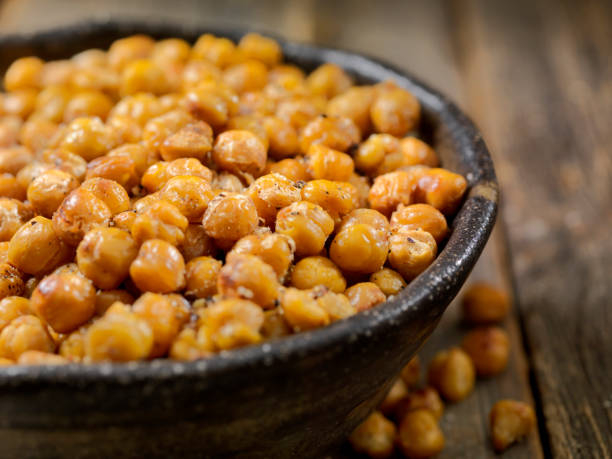
May help you manage your weight 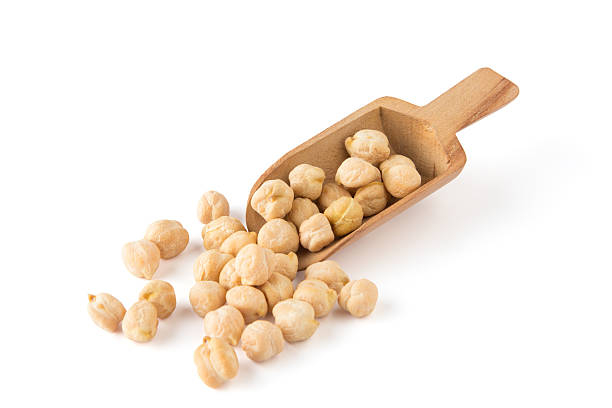
May help you manage your weight -
Your blood sugar levels may be better controlled by chickpeas in a number of ways. First of all, their glycemic index (GI), a measure of how quickly your blood sugar rises after consuming a food, is quite low. Many low-GI foods in a diet have been demonstrated to help with blood sugar control. Furthermore, the fiber and protein in chickpeas may help control blood sugar levels. This is due to the fact that fiber inhibits carbohydrate absorption, promoting a sustained rise in blood sugar levels as opposed to a spike. Consuming foods high in protein may also support the maintenance of normal blood sugar levels.
In one tiny trial, consuming 1.25 cups (200 grams) of chickpeas instead of 2 pieces of white bread reduced post-meal blood sugar spikes by up to 36%. In a previous 12-week trial, it was shown that 45 participants who consumed four 10.5-ounce (300-gram) cans of chickpeas each week had significantly lower fasting insulin levels, which is crucial for controlling blood sugar. Furthermore, numerous studies link eating chickpeas to a lower risk of a number of ailments, such as diabetes and heart disease. Their ability to reduce blood sugar levels is frequently cited as the cause of these effects.
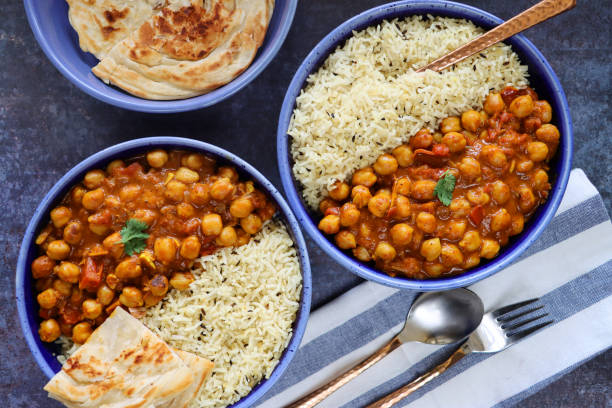
May support blood sugar regulation 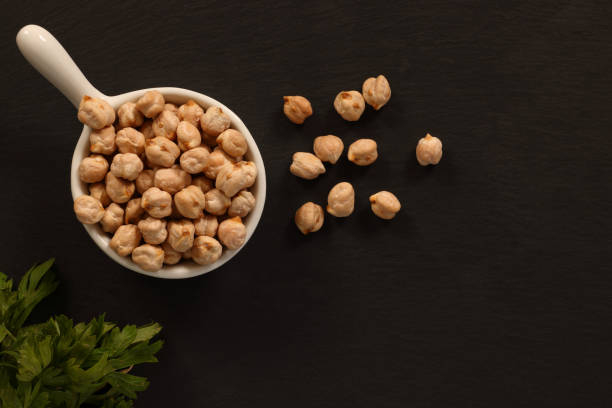
May support blood sugar regulation -
The high fiber content of chickpeas has a number of advantages for digestive health. Most of the fiber in chickpeas is soluble, which means that it combines with water in your digestive tract to create a gel-like material. In your gut, soluble fiber may assist promote the growth of beneficial bacteria while inhibiting the growth of unfavorable bacteria. This may result in a lower chance of developing several digestive diseases, including colon cancer and irritable bowel syndrome (IBS). One review found that chickpeas may enhance digestive health by increasing bowel movement frequency, ease, and regularity.
Chickpeas may promote mental and cognitive health due to their outstanding nutritional profile. This is in part due to the fact that they are an excellent source of choline, which is essential for proper brain function. This vital nutrient is particularly necessary for the creation of a few neurotransmitters that serve as chemical messengers for the nerve cells in your body. Choline is essential for newborn development, but little is known about how it affects adult health. A substantial amount of magnesium, a necessary mineral for nerve function, is also present in chickpeas. Additionally, studies suggest that a number of minerals present in these legumes, such as magnesium, selenium, and zinc, may function as antidepressants and anxiety reducers.
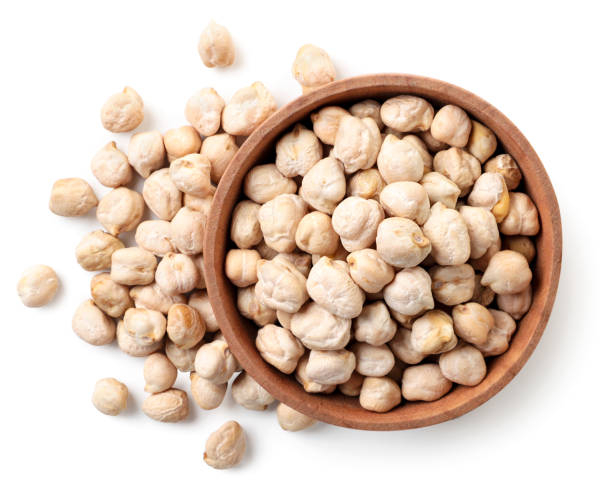
May benefit digestion 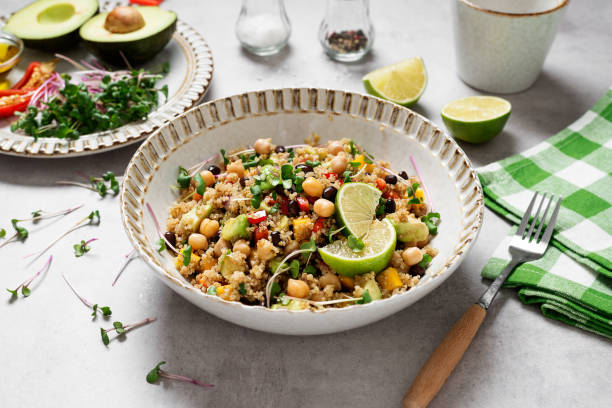
May benefit digestion -
One cup (164 grams) of chickpeas contains around 26% of the daily value (DV) for iron. Red blood cell synthesis, as well as physical development, cognitive growth, muscle metabolism, and other elements of health, all depend on iron. It's possible that your body won't be able to make healthy red blood cells if you don't get enough of this essential vitamin. This could then result in iron deficiency, which is a condition marked by signs including weariness, weakness, and shortness of breath.
Therefore, those who may be at a greater risk of iron deficiency, such as vegans and vegetarians, could choose chickpeas as a fantastic alternative. Additionally, chickpeas contain vitamin C, which could improve your body's absorption of iron.
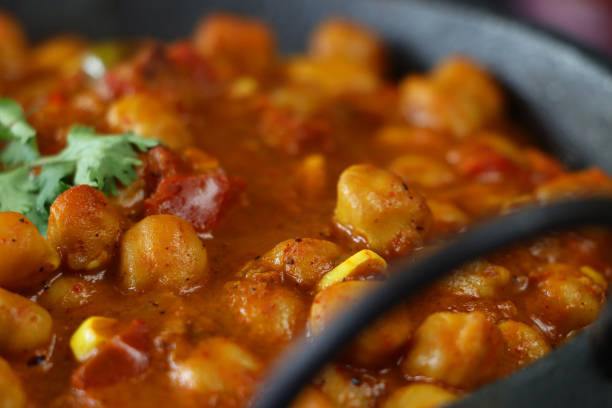
May help prevent iron deficiency 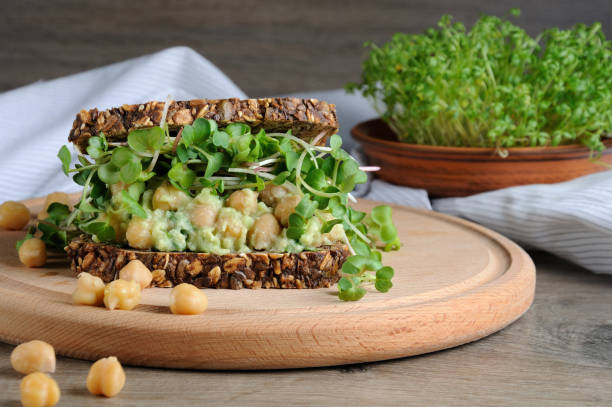
May help prevent iron deficiency -
The minerals magnesium and potassium, which are abundant in chickpeas, may support heart health by lowering blood pressure, a significant risk factor for heart disease. Additionally, studies have demonstrated that the soluble fiber in chickpeas lowers triglycerides and LDL (bad) cholesterol, both of which are increased and may raise the risk of heart disease. Eating at least 1 serving of legumes per day, particularly chickpeas, may help considerably lower LDL (bad) cholesterol, according to a review of 26 studies.
According to some research, eating chickpeas frequently may lower your risk of developing some cancers. This is due to the possibility that this legume may encourage your body to produce butyrate, a fatty acid that may lessen inflammation in colon cells and so perhaps lower your risk of colon cancer. Additionally, chickpeas contain saponins, which are plant substances that may aid in the prevention of several malignancies. Saponins' potential to stop tumor growth has also been investigated. Additionally, chickpeas include a number of vitamins and minerals that may reduce your risk of developing cancer, such as B vitamins, which may reduce your risk of developing breast and lung cancer.
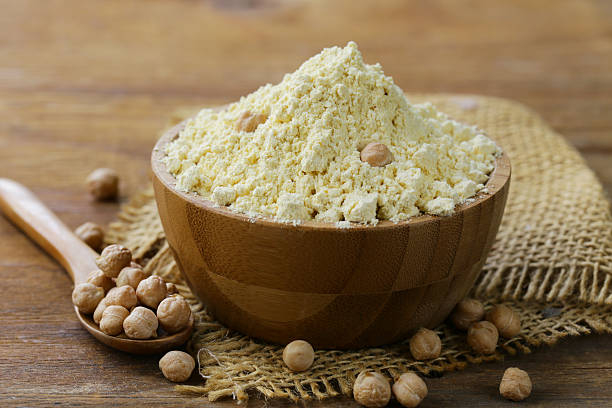
Heart disease 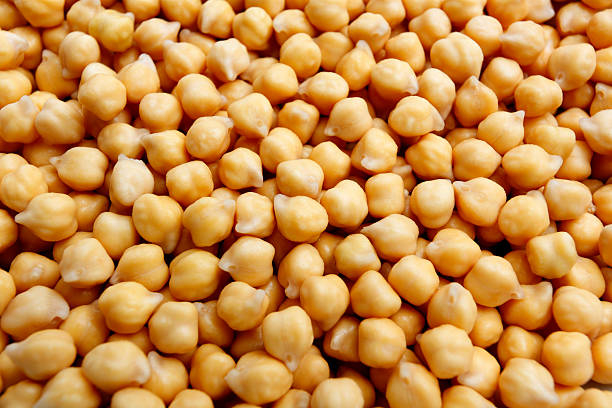
Heart disease -
Due to their ability to regulate blood sugar, chickpeas may be useful in managing and preventing diabetes. Chickpeas contain fiber and protein that help prevent your blood sugar from increasing too soon after eating, which is crucial for managing diabetes.
Additionally, because they have a low glycemic index (GI), they are suitable for diabetics because they are less likely to cause blood sugar rises. Additionally, they include magnesium and B vitamins, which have been shown to lower your risk of developing type 2 diabetes. The zinc in them could also aid in the treatment of this ailment. Chickpeas are incredibly easy to add to your diet. They’re affordable and widely available in both canned and dry varieties. Due to their high protein content, they’re an excellent substitute for meat on vegetarian and vegan diets. Plus, chickpeas are versatile and can be added to a variety of dishes, such as salads, soups, or sandwiches.
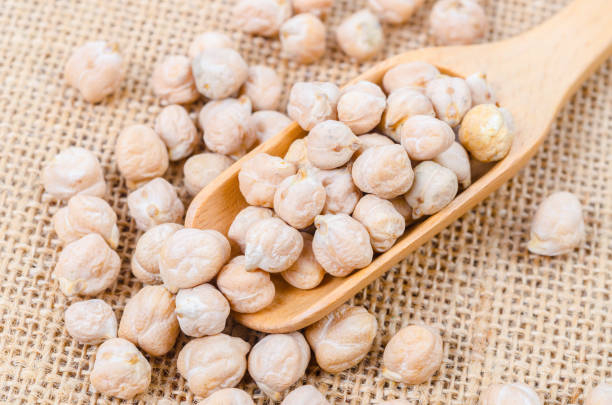
May protect against type 2 diabetes 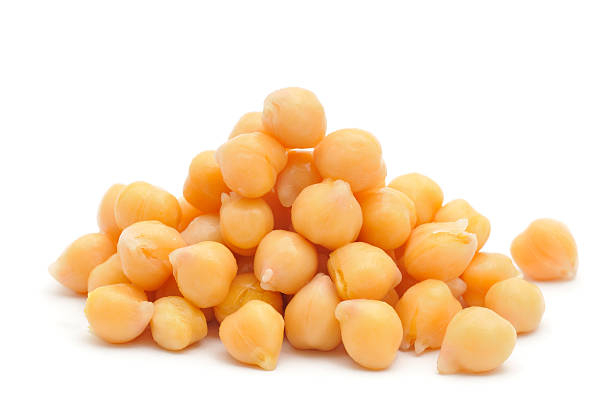
May protect against type 2 diabetes






























